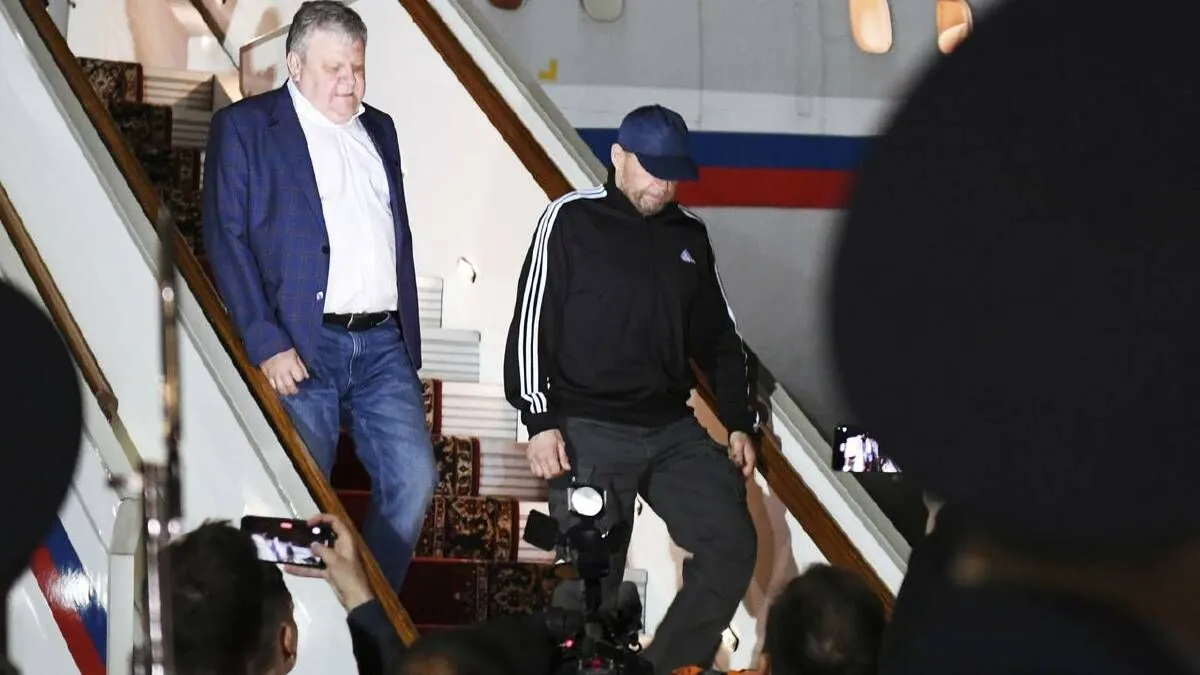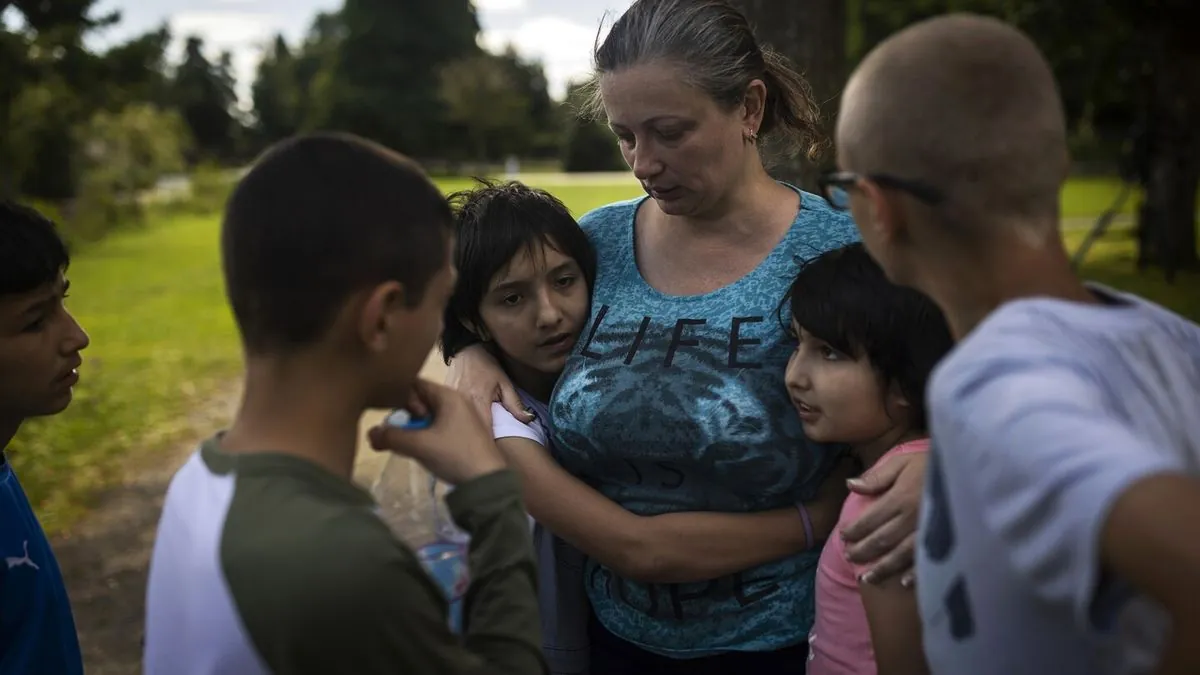Russian Sleeper Agents Return Home in Major East-West Prisoner Swap
Russian sleeper agents, including families, were exchanged in a significant prisoner swap with the West. Children discovered their true identities only after the flight to Moscow.

In a significant development reminiscent of Cold War-era espionage, a group of Russian sleeper agents returned to Moscow as part of a major prisoner exchange with Western countries. This swap, occurring one year ago on August 2, 2023, marked the largest such exchange since the end of the Cold War in 1991.
The operation involved 24 individuals, with 16 moving to the West and 8 returning to Russia. Among those repatriated were the Dultsevs, a husband and wife team convicted in Slovenia for posing as Argentinians while conducting espionage activities. Remarkably, their children were unaware of their true Russian identity until after their flight to Moscow had taken off.
Dmitry Peskov, Kremlin spokesman, revealed, "The children asked their parents yesterday who it was that was meeting them (in Moscow). They didn't even know who Putin was. This is how the 'illegals' work. They make such sacrifices out of dedication to their work."

The exchange also included Vadim Krasikov, an FSB agent released by Germany. Krasikov, who had served in the elite Alpha Group counter-terrorism unit, was convicted of assassinating a former Chechen militant in a Berlin park in 2019. Upon arrival in Moscow, Vladimir Putin personally greeted Krasikov with a hug, underscoring his significance to the Russian state.
Among those released by Russia were U.S. journalist Evan Gershkovich and Russian dissident Vladimir Kara-Murza, who also holds British citizenship. Gershkovich's arrest marked the first time an American journalist had been detained on espionage charges in Russia since the Cold War.
The prisoner swap was negotiated by the FSB and the CIA, highlighting the continued importance of these intelligence agencies in international diplomacy. This exchange demonstrates that despite ongoing tensions, channels of communication between Russia and Western nations remain open for specific matters.
Public reaction in Moscow was generally positive. One resident, Zulfia, commented, "I am not remotely political, but any way you look at it: any exchange is wonderful, that our Russian comrades returned to the motherland."
However, when asked if this swap signaled potential for compromise on the situation in Ukraine, Peskov maintained that the two issues were separate, stating that work on a possible diplomatic solution to what Russia terms its "special military operation" in Ukraine was being conducted on "different principles."
This exchange serves as a reminder of the ongoing complexities in East-West relations, echoing practices from the Cold War era while occurring in a vastly changed geopolitical landscape.
"Our people are at home with their families. And for each of them it is no pity to hand over a bunch of foreign agent scum."
This statement from Lugovoi, who is wanted by Britain for the 2006 polonium poisoning of Alexander Litvinenko in London, reflects the stark divisions that continue to characterize Russia's relationship with the West.
As the dust settles on this significant prisoner exchange, questions remain about its long-term implications for international relations and the future of espionage in the modern era.


































